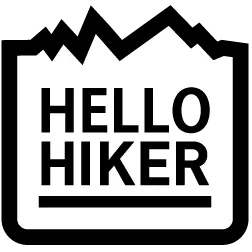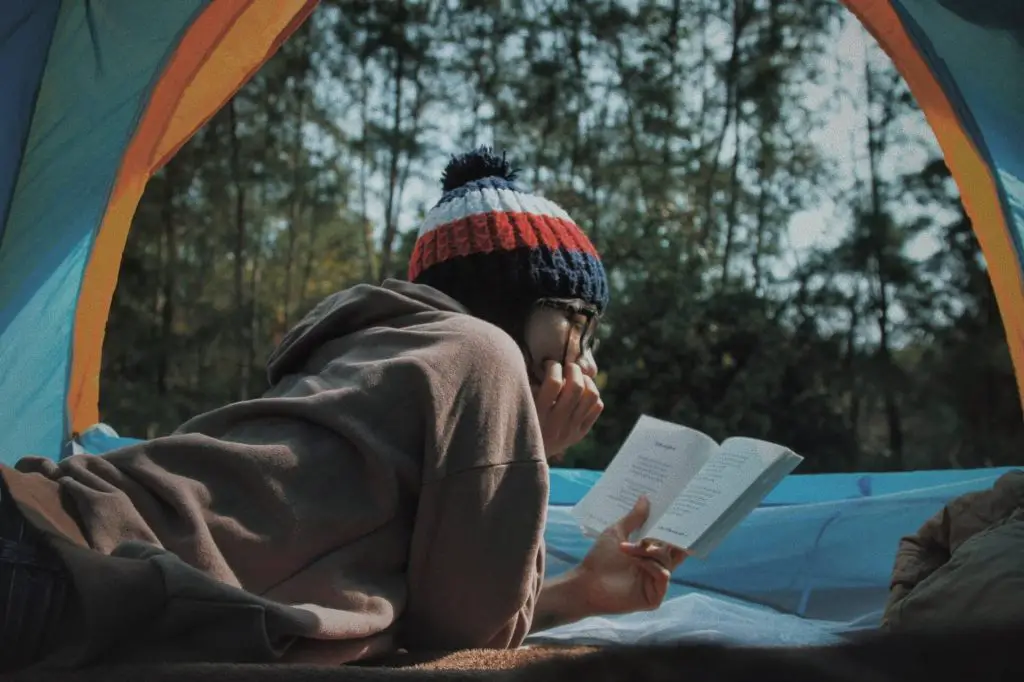
Camping trips are filled with scenic hiking trails, delicious camping meals, a warm drink on a cold morning, and also sleeping in a tent. Heading out on a camping trip is filled with fun and being able to relax in nature, but why do you have trouble sleeping?
People have trouble sleeping while they are camping due to sleeping in a new environment, feeling uncomfortable on your sleeping pad and sleeping bag, possible anxiety from critters and wild life, discomfort from sleeping on the ground, impact from the elements such as cold drafts or heat, or worries about the unlimited scenarios in the wild that can play out.
I’ve been camping for many years and used to have nights where I toss and turn and have a very hard time falling asleep. Throughout the years I’ve been able to find many things that have helped me fall asleep much easier that you can follow so you can easily fall sleep when you go on your next camping trip.
Why is it so hard to sleep while camping?
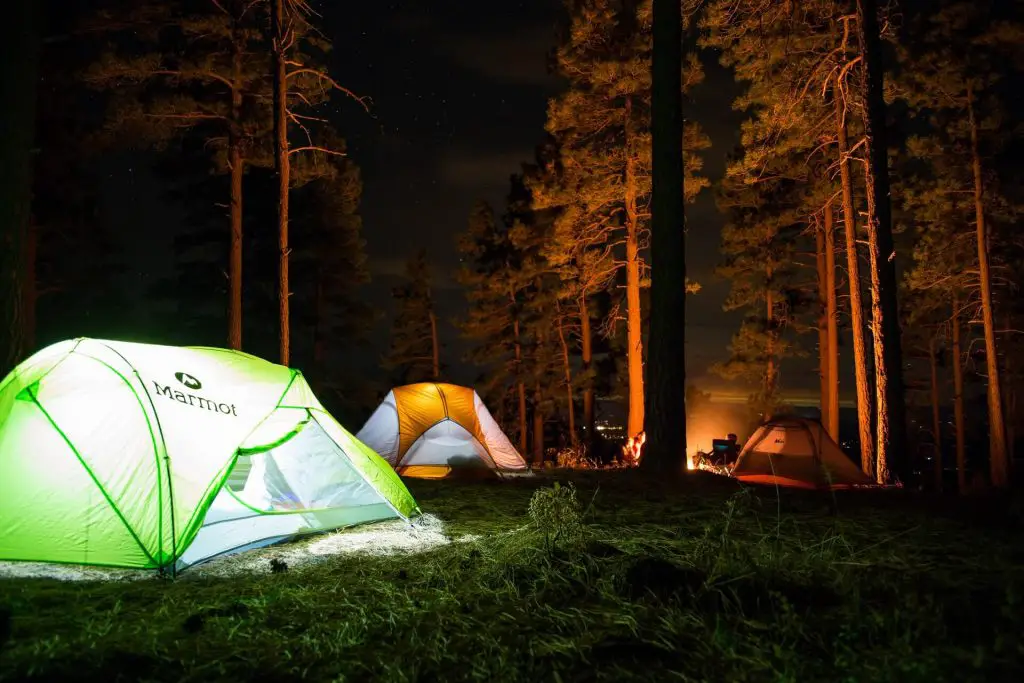
New Environment
The first challenge of trying to fall asleep during your camping trip is being in a completely new environment that isn’t your bed at home. It is normal and natural to find it difficult to fall asleep on your first night in your tent. Your body knows subconsciously that it is in a new and unsafe area so you can have anxiety about falling asleep.
On top of that some people think about the critters and wild life that roams in the camping area. These are just some of the major things that can cause you difficulty falling asleep. To help calm some of these nerves you can sleep with a friend or significant other, scout out the area so you know what surrounds your campsite, and research what potential critters or wild life you come across so you are prepared in case of an encounter.
Uncomfortable Sleeping Setup
The next challenge that can cause you discomfort and make it hard to fall asleep on your camping trip is a bad sleeping setup. Since you are sleeping on the ground a good sleeping pad makes a huge difference. You want one that keeps the cold of the ground away and is thick enough so that your body is comfortable and can relax. Having the right sleeping pad makes a huge difference.
The next part of your sleeping setup is your sleeping bag or quilt. Buying the right sleeping bag for the season your in will also make a massive difference. You should get a sleeping bad rated for the expected temperatures so that you are cool if its a hot night or warm if its a cold night. I have tried to use summer sleeping bags in the winter and that failed miserably because I was way too cold to sleep. Now I have two sleeping bags and use them depending on which season I am camping.
Amazon – The Most Recommended Inflatable Sleeping Pad By Hikers
Kelty – Highest Rated Sleeping Bags on Amazon
Elements and Temperature
Another reason you may have a hard time falling asleep is due to mother nature. Tents have zero insulation other than the rain cover and outer netting so you are exposed to wind, heat, rain, and any other element the weather has up its sleeves. Luckily for you, you can adjust your tent by adding or removing your rain fly, blocking drafts with your jacket and rain-fly, and if possible picking a setup spot that is away from the elements.
Another thing you can control to help adjust to the elements is to layer up or layer down your clothes. Bring a down jacket and rain jacket to help you layer up on cooler nights. You can also wear polyester shirts that are breathable to help you stay cool on warmer nights. The weather can be unpredictable in certain areas, so learn to adapt to whatever comes your way and you will feel more comfortable and make it easier for yourself to fall asleep.
How do you fall asleep in a tent?
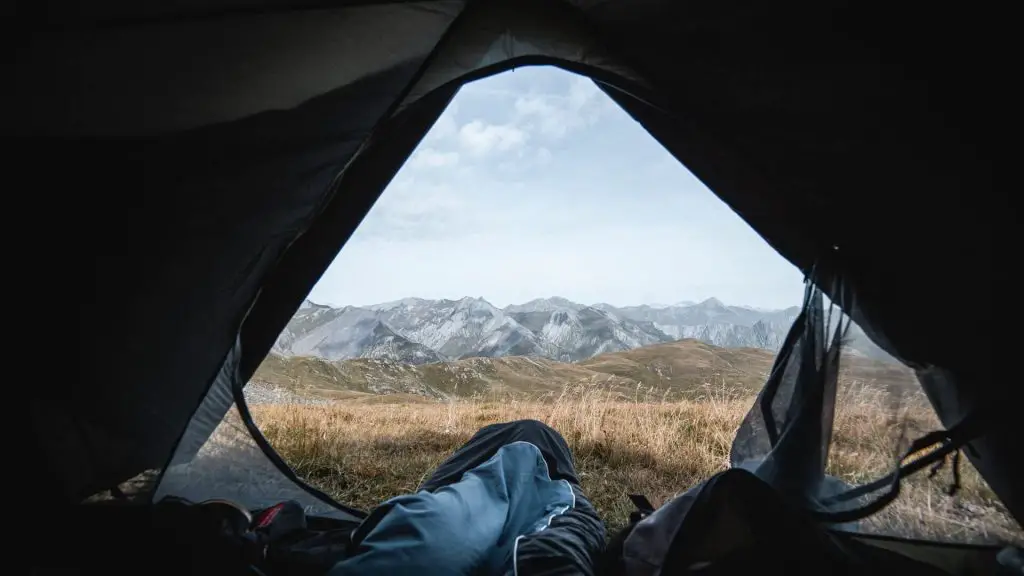
Hikes and Physical Activities
The first way to help you fall asleep is to just tire yourself out from hiking, biking, or other outdoor activities. After a long day out on the trails or in the wilderness, you can help yourself fall asleep due to tiring out your body.
A lot of hiking or outdoor activities will help your body focus on its soreness and aches from a solid day outside rather than other things. I always sleep like a baby after a long day of hiking.
Freshen Up
The next thing you can do to help yourself fall asleep is to freshen up. After hiking and other outdoor activities your body is sweaty and likely covered in dirt. You should wash up if your campsite has showers or use outdoor body wipes to help you feel cleaner.
Once you’ve freshened up then you want to make sure you have clean shirts, pants, and socks to change into. There is no better feeling than taking off those sweaty hiking socks after hitting the trails. Having new clothes and a clean body does two things. First it helps you shift gears to relaxation mode and it helps keep your sleeping bag clean.
Dinner Time
After time out on the trails its always great to have a delicious camping meal. Try to time your meal at least two hours before you head to sleep. This will help your body digest before you lie down and try to get some shut eye. Giving it time will help your body relax and make it easier to fall asleep. Another thing you can eat before bed is melatonin gummies. Check with your doctor if its okay to eat, but melatonin gummies have come in handy for tougher camping environments for me.
Olly Melatonin Gummies on Amazon
How do you sleep comfortably at camp?
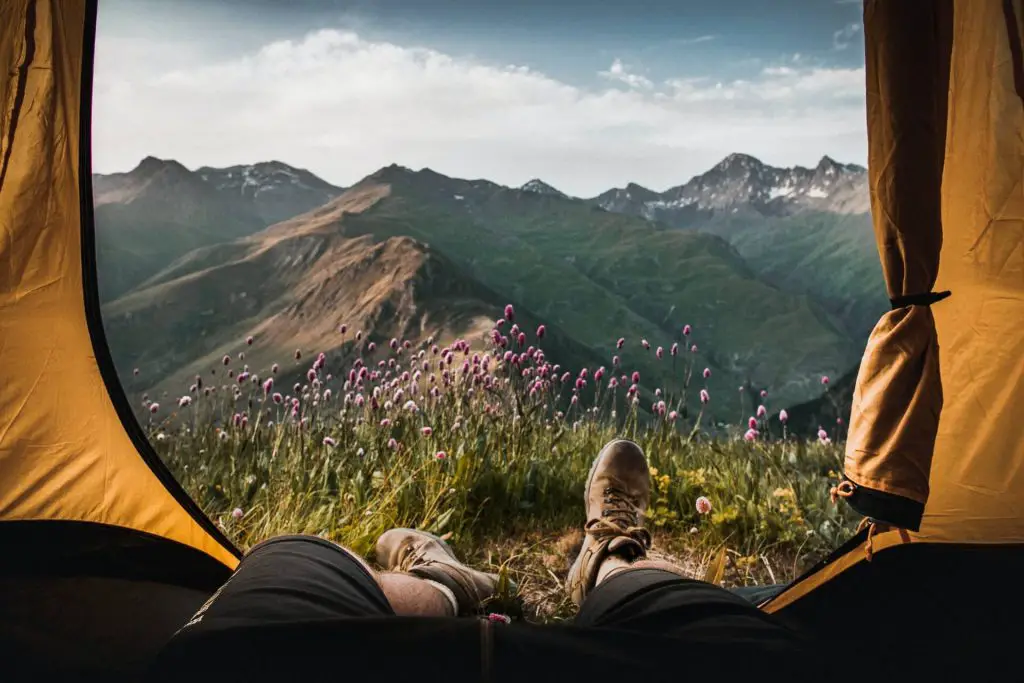
Sleeping Pad and Sleeping Bag
The core two items of your sleeping setup are key to help you sleep comfortably at camp. Having the right sleeping pad with a good r-rating and enough thickness are very important. A good r-rating will protect you from the cold ground and hold your body heat in cold weather. Having a thick enough sleeping pad will prevent you from feeling the gravel and tough ground as you move around in your sleeping bag.
Your sleeping bag plays a vital role in your comfort at camp. Make sure to get one that is large enough and rated for the season you are camping in. The temperature rating is very important as you want to match it to the expected weather. If you know your body gets hot then you can opt for a higher temperature range rating. On the flip side if you know you sleep cold then it is a good idea to get lower temperature rating.
Amazon – The Most Recommended Inflatable Sleeping Pad By Hikers
Kelty – Highest Rated Sleeping Bags on Amazon
Camp Pillow
Once you have your sleeping and sleeping bag squared away the next thing to help you sleep comfortably at camp is a good camp pillow. A good camping pillow will elevate your head and neck similar to the pillow you normally sleep with. You want to help match your camping conditions to your bed as much as possible so you don’t have kinks in your next or shoulders after you wake up. Its a good idea to use an inflatable sleeping pad so you can expand or compress to make it comfortable for you.
Klymit – Highest Rated Camping Pillow on Amazon
Sleeping Clothes
The final element to help you sleep comfortably at camp is the right sleeping clothes. You want to bring extra layers for the cold and breathable layers if its hot. Having a fresh change of clothes for sleep is also really important.
Fresh clothes and fresh socks make a world of difference when trying to be comfortable at camp. You will feel more fresh and relaxed in your sleeping bag as opposed to sweaty and tired after your outdoor activities.
Final Thoughts
Camping is filled with fun and thrills, but can also be filled with concern and anxiety when sleeping. Just know you aren’t alone and many other campers have a tough time falling asleep for the same reasons. Over time through trial and error with your camping setup, you will likely be able to easily fall asleep and get a good nights rest.
Now you know about some key reasons why you can’t fall asleep and things you can control to help make falling asleep easier and ensure you are very comfortable when you are camping. Try out the things above and have fun on your next camping adventure!
